September 11th, a notorious date in a number of calendars and geographies, saw Raul Zibechi presenting his latest book “Mundos otros y pueblos en movimiento” at Sendas (Pathways/paths) in San Cristobal de Las Casas. The event marked the coming together of well-trodden paths in this joint venture between Schools for Chiapas and Imaginarte, and this time with La Cosecha. Other paths and collectives also converged leading to a lively and interesting debate, and rays of hope that shed some light on the dark times that we traverse.
Sendas describes itself as a “gathering place, a cultural café, a library of social movements and popular communication; screening (projection) and meeting room; a store for artisanry and popular graphics; a distribution center of rural cooperatives in resistance; a space for the collaboration of solidarity economies between cooperatives and collectives”, and its opening week certainly lived up to that description.
Sendas opened its doors to the public on September 4th and has already held an event with the inauguration of an exhibition entitled “Chiapas: Resistance and Utopia” together with a local photographic collective, Tragameluz, on September 7th. Schools for Chiapas marked the opening republishing an interview from ROAR magazine with Irish activist and author Ramor Ryan, which touched on the work of Zibechi, Zapatismo, and solidarity, among other topics (https://schoolsforchiapas.org/journey-for-life-pathways-to-new-encounters).
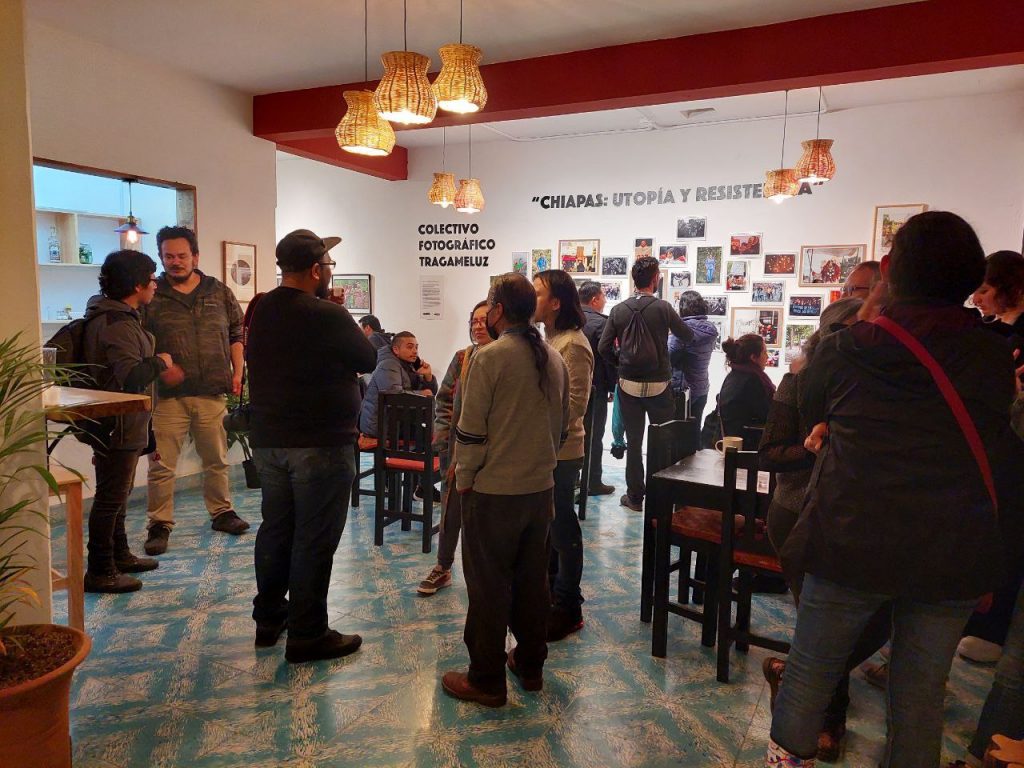
Raul’s book is a compilation of seven works that deal with organized peoples as collective subjects of resistance to capitalism, who at the same time are creating new worlds which can serve as a compass for all those on their respective pathways to other, possible worlds. Raul made it clear from the outset, though, that he wasn’t going to talk about his book. Instead he shared reflections on the imaginary, the imagery, the images that we use, and how they reflect our hopes and desires to change the world, all this with the very pertinent images of the Tragameluz exhibition as a backdrop. These thoughts were shared in a round-table discussion with Rocio Martinez, Rosaluz Perez and Ana Valadez.
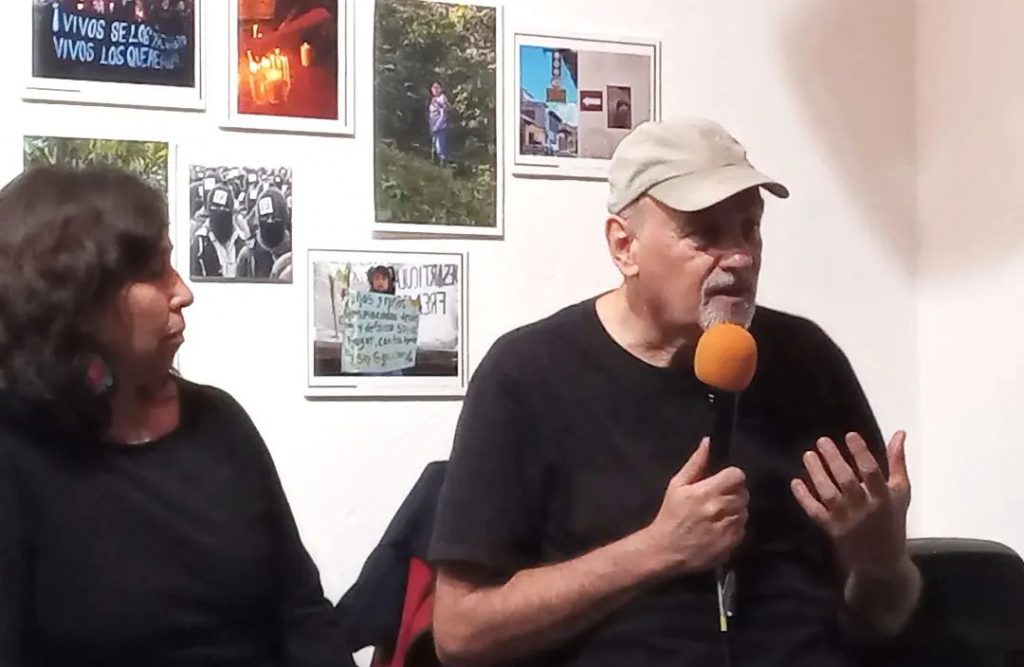
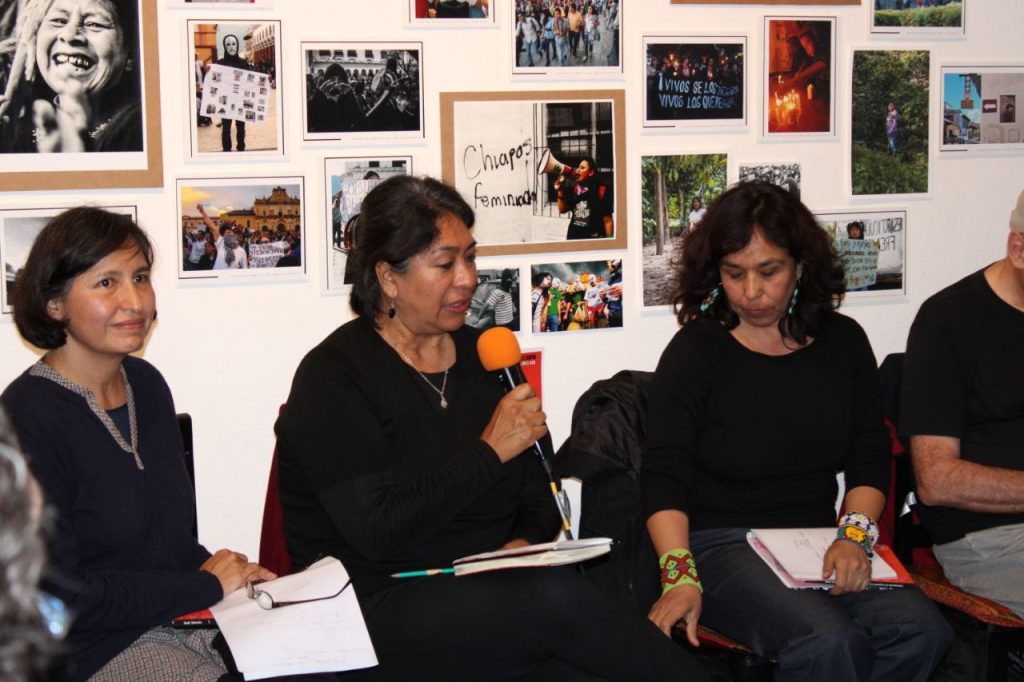
Recurring themes in the discussion were the roles that indigenous peoples and women have had in transforming traditional masculine, patriarchal ideas of revolution in the recent past and especially as central players in the Zapatista movement in Chiapas. In tandem with the concept of sendas, Raul used a maritime analogy to note how globally, sectors of the population are flowing along different currents but in a common direction against oppressive systems. Other forces are moving against these currents, creating conflict and chaos. The struggle against these forces is by no means a straight path and we are constantly challenged to dream new dreams and imagine new paths to continue this struggle. Sendas represents another small step in this process.
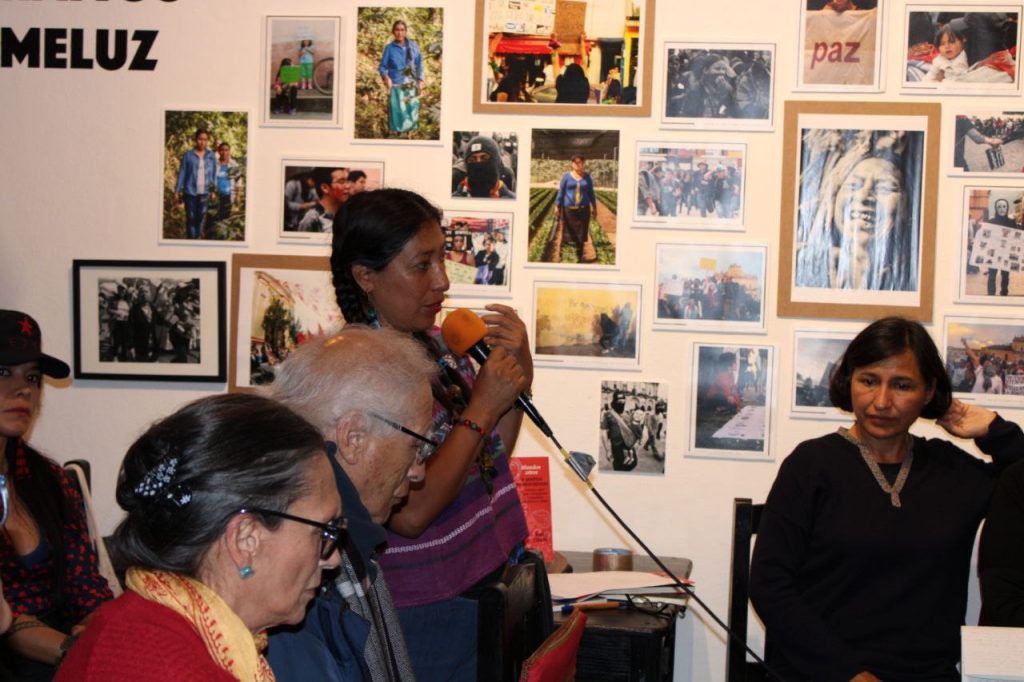
The practice of collective work was mentioned as being fundamental to indigenous communities, and it is also a fundamental practice in the work of Sendas where the images of Imaginarte, the crafts from indigenous communities, plants from the Schools for Chiapas Vivero Muy Otro, and the aroma of coffee from the kitchen flow together in a common space. But it is even more so as a proposal for a space and collective that offers itself and calls on other collectives to participate in and bring life to the space. A space for sharing ideas and experiences and looking to the future, as one speaker from the floor described.
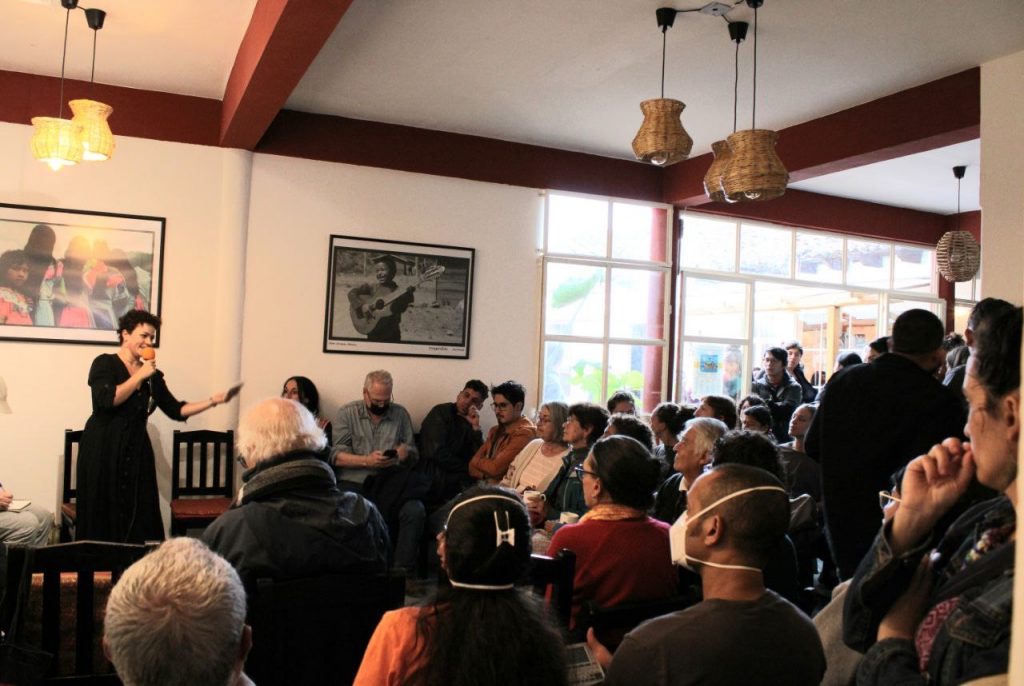
Reference was made to the Zapatista principle of “Build and not destroy”, not one but many worlds, and this was palpable from the sheer hard work that has gone into preparing Sendas in such a short time, as well as in the variety of peoples, geographies, genders and ages that came together for the presentation. One speaker celebrated the fact that so many compas had a space to come together after such a long time. Many members of the public also made similar comments and noted the need for a space like Sendas in San Cristobal. There was a feeling of ‘fiesta”, and another speaker highlighted the importance of “la fiesta” in indigenous culture, this not being one day but every day. Doubtless, this was but the first of many “fiestas” at Sendas.
This text written by Schools for Chiapas. Photos by Schools for Chiapas and La Cosecha.
